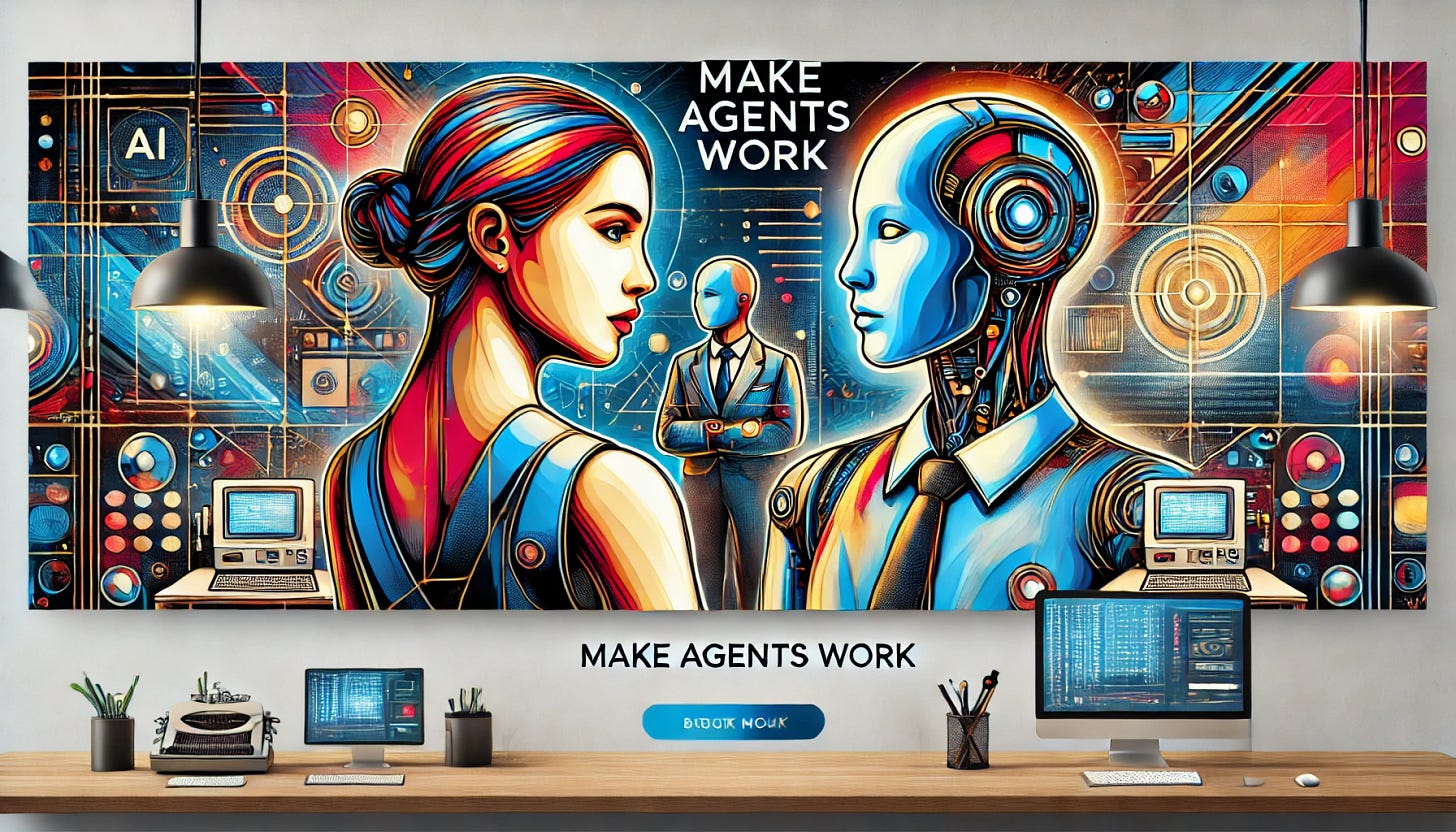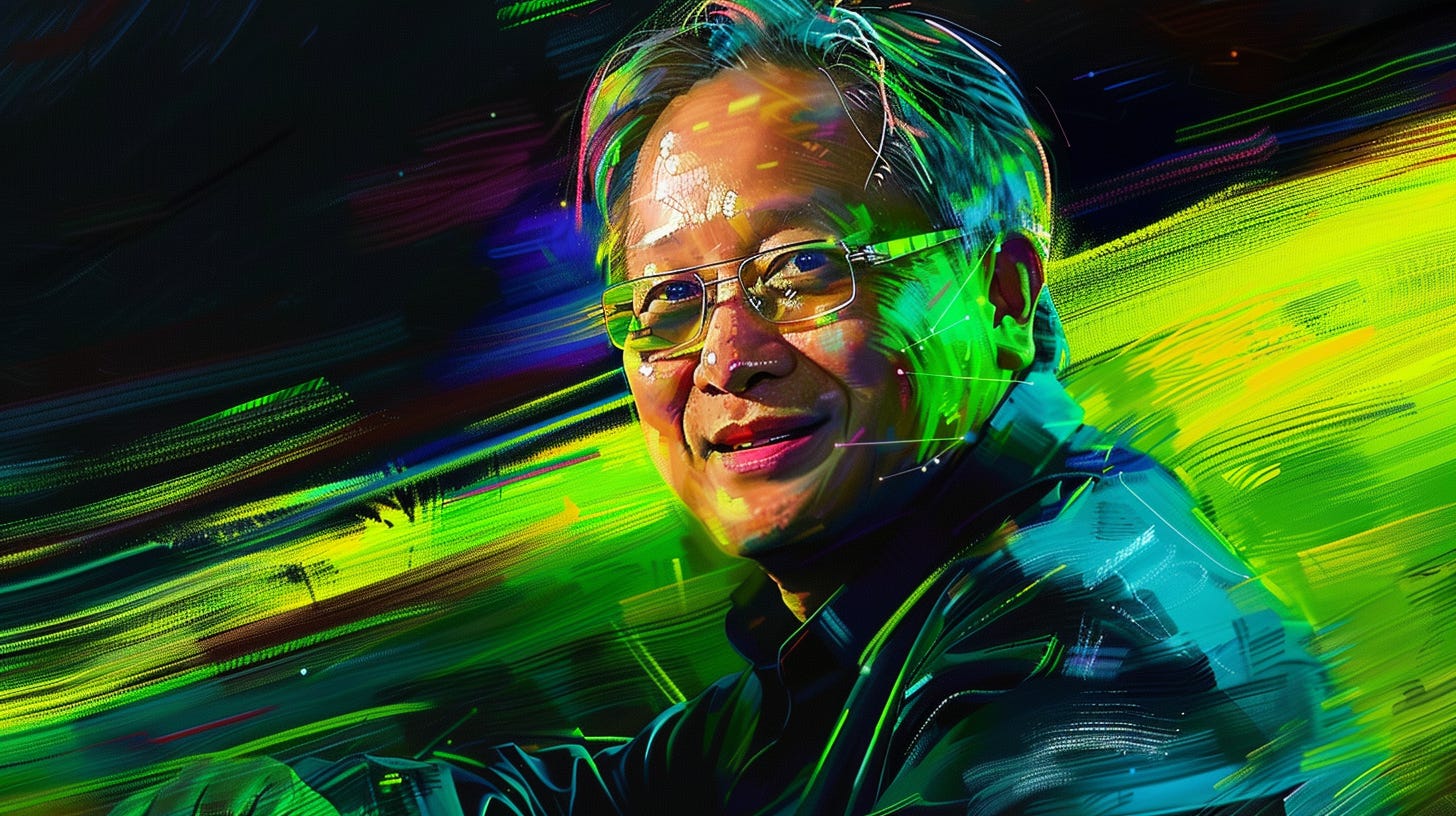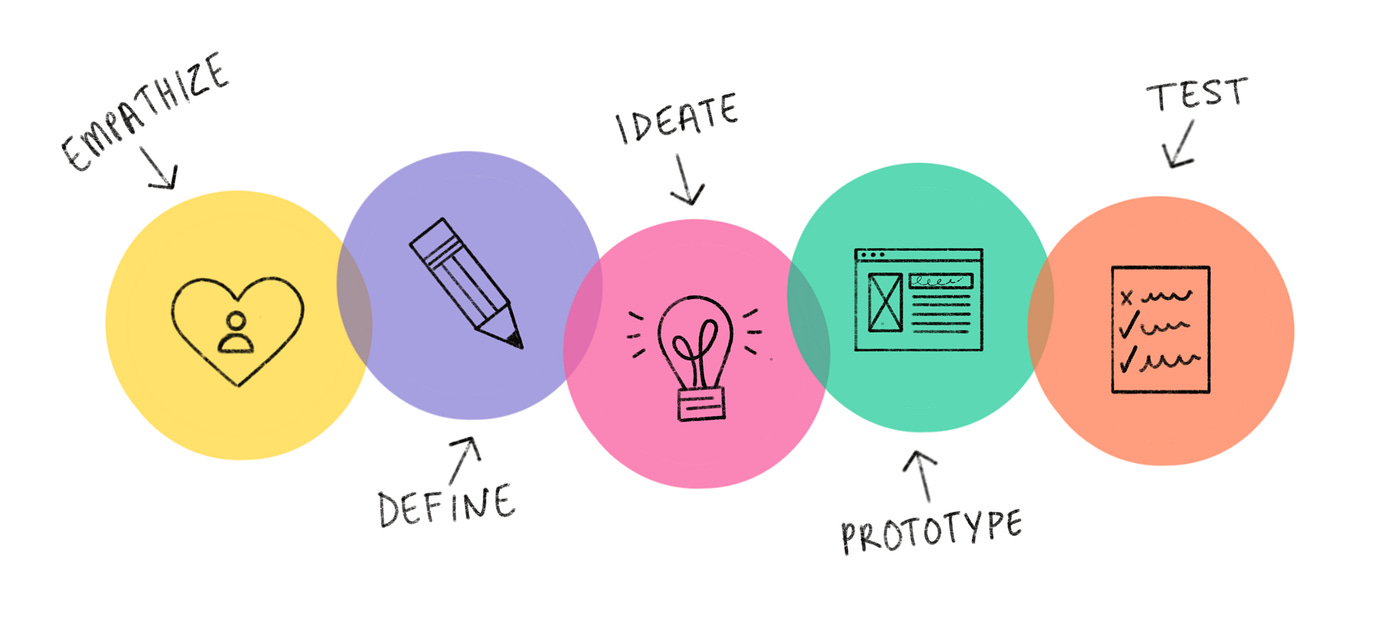Work Redesign: Humans + Agents
Moving from automation to work transformation
I write Future Work/Life to help you build great teams and careers. If you find it interesting, please share it!
The shift to AI co-workers isn't just another tech trend - it's a fundamental transformation in how work gets done.
Today, let’s focus on how you should approach this transformation.
Moving through the stages
Most organisations will progress through three distinct stages, each building on the last:
1. Task Automation:
Start by using AI agents to handle routine work faster - think automated email responses or document processing. It's a start, but barely scratches the surface of what's possible.
2. Process Enhancement:
This is where it gets interesting. Instead of just automating individual tasks, AI agents start improving how work gets done. They coordinate between systems, learn from patterns, and adapt their approach based on what works.
3. Work Redesign:
This is the transformative stage where organisations stop asking "How can AI help us do this better?" and start asking "What could we do differently?" To address the role of the human workers.
What could this look like in practice? Let's consider the use cases we covered last week:
For legal teams: We're not about to switch to AI lawyers. Instead, human lawyers can shift from document review to solving complex client problems and structuring better deals while their ever-vigilant AI paralegals handle the research. Sounds like a great combination, right?
For marketing teams: We're not talking about AI marketers taking over. Instead, marketers can shift from campaign mechanics to building deeper customer relationships and insights. Spotting the cultural shifts that lead to breakthrough campaigns while their AI teams handle the data and execution.
For L&D teams: AI won't entirely replace the human touch in L&D. Instead, professionals can shift from managing content to helping struggling managers find their leadership style and turning fractured teams into high performers. While AI handles the personalisation and tracking.
Hire and acquire the right skills
But here's what makes this challenging. While technology advances rapidly, most organisations haven’t even reached stage one.
As Jensen Huang puts it, eventually, we'll have:
"AIs recruiting other AIs to solve problems.”
So, how do we get there?
Well, the most valuable skill in this new world isn't necessarily using AI tools. It's not even understanding how they work. It's being able to spot the opportunities to reinvent work in the first place.
That’s why we need to focus on talent-spotting for entrepreneurial skills.
Entrepreneurs share some critical traits. They see patterns others miss and turn problems into opportunities. They experiment quickly, learn from failures, and build momentum through small wins. Most importantly, they think in systems, not just tasks.
These are exactly the skills needed to thrive in a world of AI agents. And more of your team have these characteristics than you might think.
Quick team assessment
Rate your team's entrepreneurial readiness by evaluating how often they:
Challenge existing processes with 'What if?' questions.
Propose solutions before pointing out problems.
Learn from failures rather than avoid risks.
Connect dots across different business areas.
Take initiative without waiting for perfect information.
Treat this like any other innovation project. And, if in doubt, it wouldn’t do any harm to return to some good old design thinking principles.
Making It Happen
How can you practically prepare for the Human + Agent workforce?
Identify your biggest opportunities. Here are three solid signs of where to start:
Clear metrics for success + Limited risk if something goes wrong + Potential for significant impact at scale.
Specifically, where do your teams spend hours on repetitive tasks, need to coordinate multiple systems, and feel held back by human limitations like time?
1. Mapping the landscape:
List your team's repetitive tasks, note which processes cause the most frustration, and identify where slow response times hurt performance.
2. Start small but think big:
Pick one process that meets the criteria above. Design a small pilot with clear success metrics. Document everything you learn. Build support by showing early wins.
3. Build your dream team:
Identify your natural entrepreneurs. Look for people who:
Have successfully launched new initiatives, no matter how small.
Get excited about solving complex problems rather than following established processes.
Naturally gather cross-functional perspectives before making decisions.
Have a track record of turning vague ideas into concrete results.
Give these people explicit permission to experiment with AI agents. Start with:
Protected time for exploration (think Google's famous 20% time policy).
Direct access to key stakeholders - prove you’re taking this seriously.
Regular sessions to share learnings with leadership
Most importantly, shield them from the ',but we've always done it this way' resistance that kills innovation.
Onwards…
The opportunity is clear. The technology is ready. We can move beyond simple automation to fundamentally reimagine how work gets done. The only question is - where will you start?
Thanks for reading,
Ollie
P.S. I'm working with forward-thinking organisations throughout 2025 to:
Assess their current stage in the AI journey
Identify their highest-impact opportunities
Build practical roadmaps for transformation
Develop their entrepreneurial talent
Guide their first pilot projects
If that sounds interesting, book some time to speak here.
Because in 12 months, the question won't be 'Should we use AI agents?' but 'Why didn't we start sooner?'"





